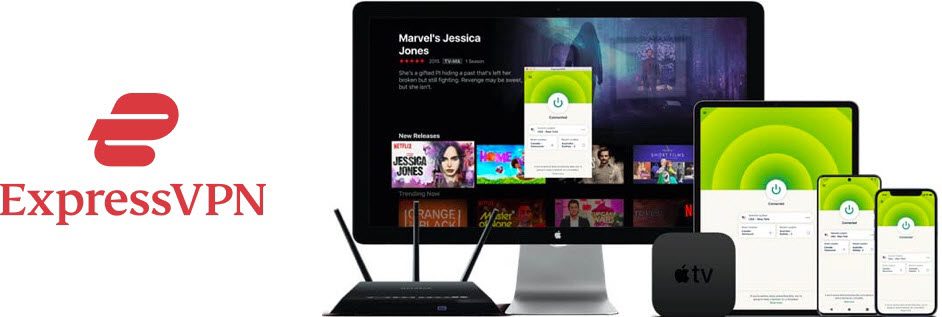
DuckDuckGo is a privacy-oriented search engine and browser. Unless you live under a rock, you know how much Google is part of our lives. Whether it’s the Android operating system, Google Chrome, Gmail, Google maps, the search engine, or others, the big G is hard to escape. It’s so big that the name’s been turned into a verb. Google is a big data company, and some are starting to care about the information it collects on its users. Because of that, competitors to the popular search engine have sprung up. One that’s quickly gaining popularity is called DuckDuckGo.
| Rank | VPN Service | Rating | Server Locations | Visit |
|---|---|---|---|---|
| 1 |  | 9.8 | 160 |  |
| 2 |  | 9.4 | 87 |  |
| 3 |  | 9.2 | 95 |  |
What is DuckDuckGo?
We just mentioned that DuckDuckGo is a competitive privacy-oriented search engine and browser (mobile only) that competes with Google. What makes it different from the big G is its lack of tracking. As you may know, when you look something up on Google, you give the company your information. It watches what you search for and the websites you visit. Then, it uses that information to show you targeted ads. Have you searched for a product and had that same item appear in ads on multiple sites? Of course, you have. That’s because Google is placing them there. It also keeps track of where you are, and by using geofencing, you’ll see ads for local companies that want your business. Sadly, most of us have gotten used to it, so we don’t think about it.
However, DuckDuckGo does not track or collect your data. When you search with DDG, data traces disappear immediately. That means you can browse safely and privately. DDG does not have targeted results or ads. It’s not going to pigeonhole you into one demographic or another. It also won’t put you in a feedback loop where it shows you what it thinks you want to see. Instead, it just works. Just like Bing and Google, it has its own extensions, and if you are a mobile user, the DDG Privacy Browser.
Is it safer than Google?
Since DDG’s main selling point is search privacy, the answer to that is yes. You can perform searches safely and it doesn’t collect search history on you. Because of that, every search is a fresh start. Although you can choose to share personal data with DDG, that is your choice. Although all search engines can be vulnerable to viruses, DDG provides you with a safe search. When you go to a website, most browsers automatically share your information. That includes the search terms you entered and your IP address. In contrast to other search engines, it masks the keywords you used and your IP address.
How does DuckDuckGo make its money?
While DDG is a solid browser, they have to keep the lights on. You will see ads if you look up a product like electronics, etc. It also uses affiliate links for some products. However, since every search is fresh, it won’t keep track of your clicks or what you’ve looked at previously. It also won’t track you across multiple websites.
Is DDG a VPN?
Despite all of the privacy protections DuckDuckGo offers, it’s not a VPN. When using a VPN, you can protect the entire device instead of just the search engine or mobile browser. If you want to protect your privacy and be able to get around geo-restrictions, you need to use a VPN. That’s especially true if you’re trying to use the search engine in countries like India and China. Not surprisingly, both countries stop their citizens from enjoying the benefits of this privacy-centric search engine.
Best VPN options for DuckDuckGo
To make sure you keep yourself safe, you need to look at a few things when choosing a VPN with DuckDuckGo. Here are the top ones.
- Strict no-logs policy – Of course, DDG is very privacy-centric. That means to maintain that level of security, you’ll want to choose a VPN that has a strict no-logs policy. If not, you’re defeating the purpose of using a private search engine.
- Advanced features – Some VPNs have different features than others. The kill switch is a good option to have and use with the browser/search engine but not essential when doing so.
- High-security protocols – The way that VPNs protect the user is by using encryption protocols. However, not all are the same. You’ll want to make sure the service offers protocols like Lightway, WireGuard, IKEv2, and OpenVPN.
Let’s take a closer look at our top recommendation, ExpressVPN

Get 3 months free with 12 months of our #1 rated VPN
Since ExpressVPN offers browser extensions for Mozilla Firefox and Google Chrome, they have also included several privacy features to help protect you. That includes re-routing you to a more secure version of the website you entered, location spoofing so that your browser will match the IP address of the area you select, and WebRTC blocking. If you connect to a VPN without this feature, websites can still see where you are. Of course, you could always get another extension to resolve the issue, but having it inclusive is better.
Streaming media is one of the fun things you can do when you are using ExpressVPN. Because there are servers and locations in 94 different countries, you can use it to open your favorite streaming services. The biggest one, of course, is Netflix. The United States has the most extensive library, with some other countries getting closes in the number of titles offered. Since the libraries have different titles available, connecting to a VPN will give you access to your favorite shows and movies. The same is true for other streaming services in the US and beyond.

